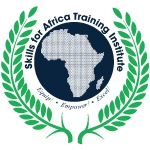|
|
Collaborative Monitoring and Evaluation (M&E) Frameworks for Multi-stakeholder Projects Course
USD 3,500 |
Venue: Nairobi
Other Dates
| Venue | Date | Fee | |
|---|---|---|---|
| Dubai, United Arab Emirates | 12 - 23 May, 2025 | USD5500 | |
| Nairobi, Kenya | 19 - 30 May, 2025 | USD3000 | |
| Nairobi, Kenya | 02 - 13 Jun, 2025 | USD3000 | |
| Mombasa, Kenya | 09 - 20 Jun, 2025 | USD3500 | |
| Nairobi, Kenya | 16 - 27 Jun, 2025 | USD3000 | |
| Nairobi, Kenya | 07 - 18 Jul, 2025 | USD3000 | |
| Nairobi, Kenya | 14 - 25 Jul, 2025 | USD3000 | |
| Johannesburg, South Africa | 14 - 25 Jul, 2025 | USD5500 |
In the context of multi-stakeholder projects, where diverse groups such as governments, non-governmental organizations, donors, local communities, and private sector partners are involved, establishing an effective monitoring and evaluation (M&E) system can be a complex and challenging task. A collaborative approach to M&E ensures that the interests, goals, and inputs of all stakeholders are considered, promoting inclusivity, transparency, and accountability throughout the project lifecycle.
The Collaborative Monitoring and Evaluation (M&E) Frameworks for Multi-Stakeholder Projects Training Course is designed to equip professionals with the tools, strategies, and techniques necessary to build and implement collaborative M&E frameworks. These frameworks facilitate joint decision-making, shared learning, and mutual accountability among stakeholders, fostering cooperation and ensuring that project objectives are met in a sustainable and inclusive manner. The course emphasizes the importance of coordination, communication, and trust-building in creating effective M&E systems for multi-stakeholder projects.
Target Audience
This course is ideal for individuals who are involved in designing, managing, or overseeing multi-stakeholder projects and who seek to develop and implement effective M&E systems that incorporate the perspectives and expertise of various partners. The target audience includes:
- M&E Specialists and Practitioners: Looking to enhance their skills in facilitating collaborative M&E processes and engaging stakeholders in monitoring and evaluation.
- Program Managers and Coordinators: Leading multi-stakeholder projects and seeking to build or improve M&E frameworks that integrate diverse inputs.
- Donors and Funders: Interested in understanding how to support the development and use of collaborative M&E systems in funded projects.
- Government Officials: Responsible for monitoring and evaluating projects involving multiple sectors or stakeholders.
- NGO and Development Partners: Engaged in implementing projects that require coordination across various stakeholders.
- Consultants and Researchers: Supporting the design, implementation, or evaluation of multi-stakeholder projects.
Course Objectives
By the end of this course, participants will be able to:
- Understand the Principles of Collaborative M&E: Gain an understanding of the value and importance of collaborative M&E frameworks in multi-stakeholder projects, focusing on inclusivity, mutual accountability, and shared learning.
- Design a Collaborative M&E Framework for Multi-Stakeholder Projects: Learn how to design M&E systems that involve multiple stakeholders, ensuring that each partner's role, contributions, and expectations are clearly defined and integrated.
- Identify and Engage Relevant Stakeholders: Develop skills in identifying key stakeholders, understanding their interests and needs, and ensuring their active participation in the M&E process.
- Develop Shared Indicators and Data Collection Methods: Learn how to create shared indicators that reflect the diverse objectives of all stakeholders, and design collaborative data collection methods that are transparent and inclusive.
- Facilitate Stakeholder Coordination and Communication: Understand how to foster coordination among stakeholders and promote open, transparent communication during the M&E process, ensuring that all parties are involved and informed.
- Ensure Accountability and Transparency in M&E: Learn how to promote accountability and transparency by clearly defining roles, responsibilities, and reporting mechanisms for all stakeholders involved in the project.
- Use Collaborative M&E for Adaptive Management: Understand how to use real-time data and joint analysis to adapt and adjust project implementation strategies, ensuring that interventions remain relevant and responsive to emerging challenges.
- Build Trust and Relationships Among Stakeholders: Develop strategies for building trust and strong working relationships among stakeholders, creating a collaborative environment conducive to learning and mutual support.
- Report and Share M&E Results with Stakeholders: Gain skills in communicating M&E results in a collaborative and inclusive way, ensuring that all stakeholders are informed and can act on the findings.
- Evaluate the Effectiveness of Collaborative M&E Systems: Learn how to assess the effectiveness of collaborative M&E frameworks and make improvements based on lessons learned and feedback from stakeholders.
This course will provide participants with the tools to create and implement M&E systems that foster collaboration, transparency, and mutual learning, ensuring that multi-stakeholder projects are monitored and evaluated in a way that benefits all involved parties. Participants will leave with the practical skills needed to manage complex, multi-partner projects and ensure their success through effective collaborative M&E practices.
Duration: 10 Days
Course Content
Introduction to Collaborative M&E in Multi-Stakeholder Projects
- Overview of collaborative M&E in the context of multi-stakeholder projects
- The benefits and challenges of collaboration in M&E
- Key principles of collaborative M&E: inclusivity, transparency, mutual accountability, and shared learning
Understanding Stakeholder Mapping and Analysis
- Techniques for identifying and mapping key stakeholders in multi-stakeholder projects
- Assessing stakeholder interests, power dynamics, and roles in the M&E process
- Engaging stakeholders at different levels of the project cycle
Designing Collaborative M&E Frameworks
- Principles for designing M&E frameworks that incorporate diverse stakeholder perspectives
- Developing a shared vision and common goals for M&E among stakeholders
- Structuring the M&E system to align with the interests and needs of all stakeholders
Defining Roles, Responsibilities, and Expectations in Collaborative M&E
- Clarifying stakeholder roles in the M&E process (e.g., data collection, analysis, reporting)
- Setting clear expectations for participation and contribution from each stakeholder group
- Managing conflicts and ensuring equal participation
Developing Shared Indicators for Multi-Stakeholder Projects
- Creating shared indicators that capture the diverse objectives and priorities of stakeholders
- Using participatory methods to define and agree on indicators
- Ensuring indicators are SMART (Specific, Measurable, Achievable, Relevant, Time-bound)
Collaborative Data Collection Methods and Tools
- Designing participatory data collection methods: surveys, interviews, focus groups
- Using mixed methods for data collection (quantitative and qualitative)
- Ensuring inclusivity in data collection, particularly for marginalized groups
Establishing Data Quality Assurance and Validation Mechanisms
- Techniques for ensuring data quality, accuracy, and reliability
- Validating data from multiple sources and stakeholders
- Ensuring consistency in data collection across different partners and contexts
Facilitating Stakeholder Communication and Coordination
- Strategies for promoting open and transparent communication among stakeholders
- Tools for sharing M&E information and results with stakeholders in real time
- Regular coordination mechanisms, such as meetings, workshops, and feedback sessions
Building Trust and Managing Relationships Among Stakeholders
- Techniques for fostering trust among diverse stakeholders
- Conflict resolution strategies to address differences in stakeholder interests
- Building long-term partnerships through collaborative M&E processes
Adaptive Management in Collaborative M&E
- Using M&E data to inform adaptive management and decision-making
- Developing processes for real-time analysis and responsive changes in project implementation
- Ensuring that stakeholder feedback is integrated into program adjustments
Promoting Accountability and Transparency in M&E
- Establishing clear reporting and accountability structures for stakeholders
- Promoting transparency in data collection, analysis, and reporting
- Ensuring that all stakeholders have access to M&E findings and are involved in decision-making
Utilizing Technology and Digital Tools for Collaborative M&E
- Exploring digital tools and platforms for collaborative M&E (e.g., mobile data collection, online dashboards)
- Using technology to enhance coordination, data sharing, and stakeholder engagement
- Overcoming challenges and barriers to using digital tools in multi-stakeholder settings
Monitoring and Reporting on Collective Impact
- Defining and measuring collective impact in multi-stakeholder projects
- Developing mechanisms for joint reporting and sharing of M&E results
- Communicating the shared outcomes and impact of collaborative efforts
Evaluating the Effectiveness of Collaborative M&E Systems
- Techniques for evaluating the effectiveness of collaborative M&E frameworks
- Using feedback loops and lessons learned to improve the M&E process
- Assessing stakeholder satisfaction and participation in the M&E system
Sustaining Collaborative M&E Systems in Multi-Stakeholder Projects
- Strategies for ensuring the sustainability of collaborative M&E frameworks
- Institutionalizing collaborative M&E processes within organizations and among stakeholders
- Building the capacity of stakeholders to manage and sustain M&E systems
Case Studies and Practical Applications of Collaborative M&E Frameworks
- Review of real-world case studies of collaborative M&E in multi-stakeholder projects
- Lessons learned from the implementation of collaborative M&E systems in different sectors (e.g., development, health, education)
- Group discussions and exercises to apply learning to participants’ own projects
This training course covers the full spectrum of designing, implementing, and sustaining collaborative M&E frameworks for multi-stakeholder projects. By the end of the course, participants will be equipped with the skills needed to engage stakeholders effectively, collect and analyze data collaboratively, and use M&E systems to improve decision-making and project outcomes.
Course Booking
Please use the “book now” or “inquire” buttons on this page to either book your space or make further enquiries.
| Nairobi | May 05 - 16 May, 2025 |
| Dubai, United Arab Emirates | 12 - 23 May, 2025 |
| Nairobi, Kenya | 19 - 30 May, 2025 |
| Nairobi, Kenya | 02 - 13 Jun, 2025 |
| Mombasa, Kenya | 09 - 20 Jun, 2025 |
| Nairobi, Kenya | 16 - 27 Jun, 2025 |
| Nairobi, Kenya | 07 - 18 Jul, 2025 |
| Nairobi, Kenya | 14 - 25 Jul, 2025 |
| Johannesburg, South Africa | 14 - 25 Jul, 2025 |
| USD 3,500.00 | |
Nixon Kahuria +254 702 249449
Tags: |
Collaborative M&E Multi-Stakeholder Projects Framework Development Performance Measurement Stakeholder Engagement Data Sharing Project Outcomes |
Related Courses
 Sustainable Aquaculture and Fisheries Management: Balancing Production and Ecosystem Health
Sustainable Aquaculture and Fisheries Management: Balancing Production and Ecosystem Health
12 days, 05 - 16 May, 2025
Skills for Africa Training Institute
 Diversity, Equity, and Inclusion (DEI) Governance Training Course: Driving Dei Initiatives at the Board Level
Diversity, Equity, and Inclusion (DEI) Governance Training Course: Driving Dei Initiatives at the Board Level
5 days, 05 - 09 May, 2025
Skills for Africa Training Institute
 Financial Services Auditing: Navigating the Complexities of the Financial Industry
Financial Services Auditing: Navigating the Complexities of the Financial Industry
5 days, 05 - 09 May, 2025
Skills for Africa Training Institute
 Advanced Budget Reporting and Forecasting Training Course for Central Banks
Advanced Budget Reporting and Forecasting Training Course for Central Banks
12 days, 05 - 16 May, 2025
Skills for Africa Training Institute
Currency Converter




.png)